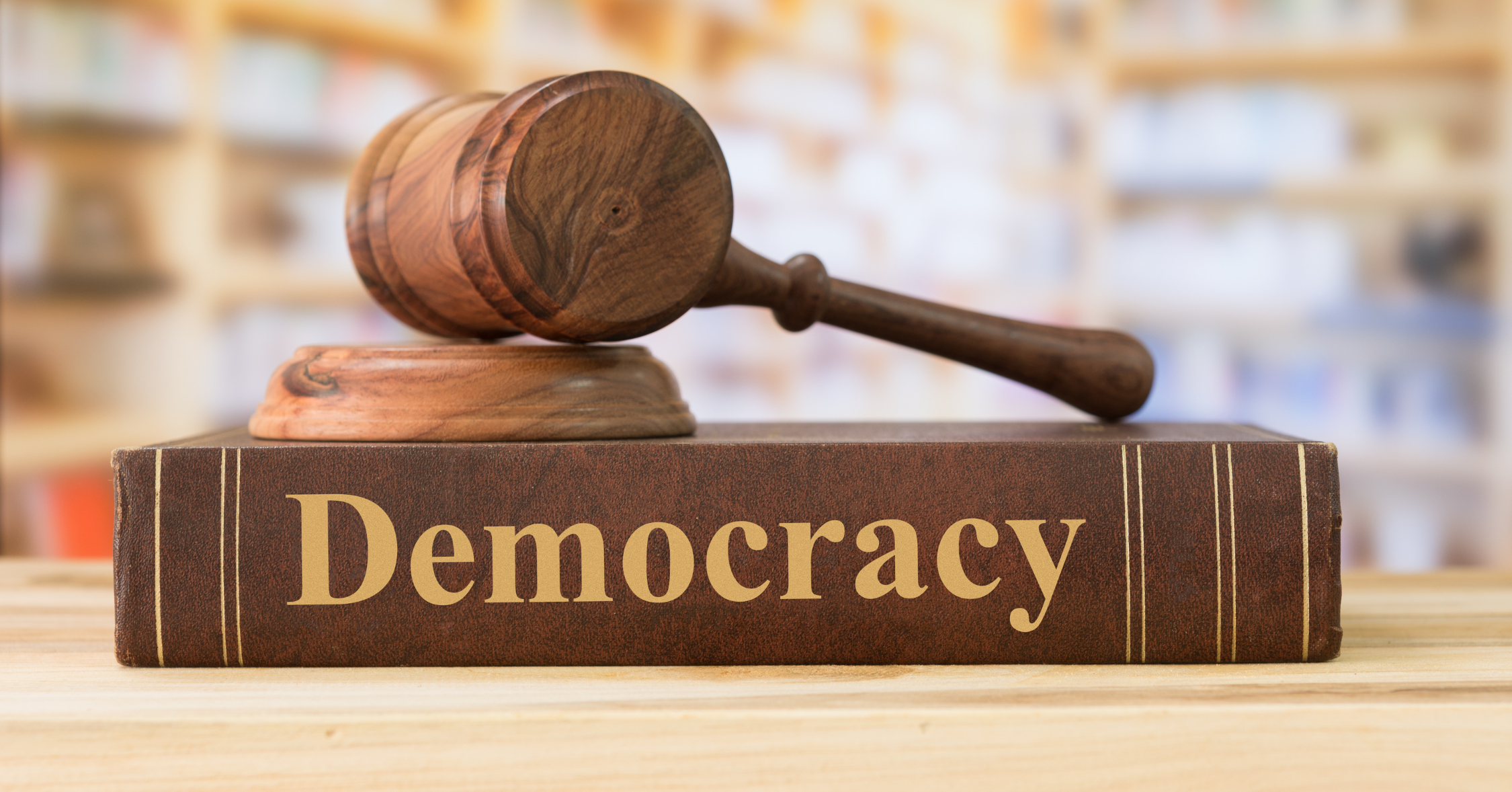Democracy is an essential part of our society, and it’s important that we continue to protect it, no matter what the future may hold. In this blog post, we explore what democracy 2024 looks like and why it’s so important. We discuss different ways that technology is affecting democracy and how we can ensure that people have a voice in the future. Whether you’re concerned about the future of our democracy or not, this post is worth reading.

Democracy Simple Definition
Democracy is a system of government in which the people are sovereign. In a democracy, the people elect representatives to represent them in public affairs. The fundamental principle of democracy is that all people should have an equal say in how their country is run. Democracy is not perfect, but it is the best system available for ensuring that everyone has a voice and a chance to be heard.
A Brief History of Democracy
As democracy 2024 has spread throughout the world, it has taken on different forms and expressions. In Ancient Greece and Rome, for example, citizens were allowed to vote on laws that would affect their society. The United States is considered to be a democracy because all citizens are allowed to vote in elections.
If you compare the United States to countries like China or Russia, you’ll notice that they are not considered democracies. In China, only men over the age of 21 are allowed to vote, while in Russia only those who have completed military service are eligible to participate.
Democracy 2024 is not just restricted to voting rights; it also encompasses the right to free speech and freedom of assembly. All people are able to express their opinions freely without fear of retribution from the government or others in society.
Democracy is not perfect, however. Critics argue that it can be unfair and unrepresentative of the people it purports to serve. For example, wealthy individuals or groups may have a greater say in politics than those who don’t have as much money. Additionally, some people feel that democracy does not allow for enough change or innovation.
What Democracy in 2024 Looks Like
In Democracy 2024 will look different from it does today. Democracies around the world are constantly evolving and growing in complexity, but there is no one model that perfectly represents all democracies.
In 2024, democracies will continue to grow in size and complexity. Countries around the world will be experimenting with new models of democracy, and we’ll see more countries adopting systems that emphasize participatory decision-making and inclusion over representation.
Some of the most popular models of democracy 2024 include participatory democracy, direct democracy, and functional citizenship. Participatory democracy is a system where citizens have a significant role in voting and decision-making processes. Direct democracy is a model where citizens vote on specific issues instead of making decisions through government officials. Functional citizenship is a type of citizenship where people are responsible for participating in society and upholding the values of the democratic system.
In addition to these models, 2024 will also see an increase in digital technologies used to support democratic processes. Organizations like OpenGov Foundation are working to develop open-source software that can be used by governments to improve transparency and accountability across all levels of government. This technology can help to foster trust between citizens and their government representatives, which is essential for a thriving democracy.
The Importance of Voting
The United States is a representative democracy. This means that the citizens elect representatives to make decisions on their behalf. The Constitution grants the people the right to vote and to have their voices heard. The process of voting is an important part of our democracy.
Voting allows citizens to cast a ballot for candidates they believe will make good decisions on their behalf. It also allows them to voice their opinion on the issues that are important to them. Voting helps keep government accountable to the people it represents.
Citizens who don’t vote can have a negative impact on democracy. Studies have shown that participation in elections increases voter turnout, which leads to more informed decision-making and better government. In addition, studies show that democracies with high levels of participation are more likely to be successful than those with low levels of participation.
So why should you vote? Simply put, it’s your responsibility as an American citizen and it makes a big difference!
The Role of Technology in Democracy
Democracy 2024 is a system of government in which citizens have the power to choose their leaders. In order for this power to be exercised, citizens must be able to access information and participate in the political process. Information technology has played an important role in democratization over the last few decades.
The internet has allowed citizens to connect with each other and learn about politics outside their home country. This allows them to form opinions on candidates and policies that would otherwise not be available to them. It also enables them to express their views online, which can help sway public opinion.
Another benefit of the internet is that it allows people to vote from anywhere in the world. This makes it easier for marginalized groups, such as immigrants, to participate in democracy.
There are still some challenges that need to be addressed when it comes to democracy through technology. For example, bots and trolls use social media platforms to spread disinformation and discord among voters. This can undermine voter engagement and turnout, which is critical for a democratic process to work properly.
The Role of Social Media in Democracy 2024
Social media has been widely used in democratic processes around the world. It allows citizens to express their opinions and thoughts on a variety of topics, which can help influence public opinion. Social media also helps mobilize people for protests and other forms of activism.
One example of how social media has helped democracy in the past was in the Syrian Civil War. Social media platforms such as Twitter were used to share information about the conflict and to organize protests and rallies against Bashar al-Assad’s regime. This helped to create a global movement against Assad and helped to bring about his downfall.
Some scholars argue that social media is not always beneficial for democracy. For example, it can be used to spread fake news and misinformation, which can have negative consequences for democracy. Additionally, social media can be addictive, which can lead users to neglect other important aspects of their lives in favor of online interactions.
Overall, social media has played an important role in both advancing and preserving democracy around the world. It continues to play a significant role in contemporary politics and is likely to continue doing so in the future.
The Role of the Military in Democracy
Military intervention is often cited as one of the reasons for the decline of democracy in certain countries. However, it is important to understand the role that the military plays in democracy.
First, the military is essential for maintaining order and protecting citizens from harm. Democracies rely on a strong Rule of Law, which requires law enforcement agencies to uphold the law without bias or political influence. The military can play an important role in ensuring that these agencies are independent and effective.
Second, the military can be used to support democratic processes when they are threatened or when they are needed to resolve a conflict. In recent years, democracies have been challenged by violent extremist groups such as Boko Haram and ISIS. The military has been called on to help maintain order and combat these groups, which has helped preserve democracy in these countries.
Ultimately, the role of the military in democracy depends on the context and situation. When used wisely, their presence can help protect citizens and promote democratic processes.
The Problems with Today’s Democracy
Democracy is a system of government in which the people are allowed to choose their leaders, who then make decisions on behalf of the people. While this system has been successful in many areas, it has also become problematic.
One problem with democracy is that it allows for too much corruption. Leaders can get rich off of their position, and they don’t have to worry about being voted out because the people can’t vote them out. This leads to bad decision-making because leaders are more interested in making money than in doing what’s best for the country.
Another problem with democracy is that it doesn’t work well when there are big differences between the groups of people. In a democracy, if one group gets too powerful, they can start to rule over the other groups. This happened in Nazi Germany, where the German people were ruled by an elite group of people who were very different from them.
Overall, democracy is a good system when it works well, but it has problems that need to be fixed if it’s going to be used more often in the future.
Overview of Democracy 2024
In democracy 2024 will continue to be a hot topic. The United States is currently experiencing a presidential election season where candidates are discussing their stances on democracy and how they would improve it. This year, the concept of “democratic socialism” has come up as a potential solution to some of the country’s problems.
The term “democratic socialism” has been around for a while, but it gained more attention in the 2020 election season when Bernie Sanders ran for president as a democratic socialist. Sanders was not the only candidate to run on this platform; Jean-Luc Mélenchon also ran in France under this banner. Some people believe that democratic socialism is the way forward for countries like the United States because it combines elements of both capitalism and socialism.
One of the main things that democratic socialists want to change is the economy. They believe that there should be more regulation and oversight of big business and that the government should play an active role in creating jobs. They also believe that education should be free and accessible to all, and that health care should be provided by the government rather than through private insurance companies.
Overall, democratic socialists are pushing for changes in society that would make it more equal and accessible for all. While their policies may seem extreme at first, they argue that if these changes are made gradually over time, they will eventually become mainstream beliefs. In 2024, we will see if their predictions are correct.
Conclusion
Democracy 2024 looks very different from what we know today. We may not be living in a democracy, but there is no doubt that the concept of democracy is flourishing and growing stronger all over the world. It seems that every day we are learning more about how democracy works and how it can be improved. This year has been especially exciting for those who believe in democracy as we have seen some major progress made at both the global and local levels. In Democracy 2024, we can expect even more advancements in the fight for democracy, so keep your eyes open!






